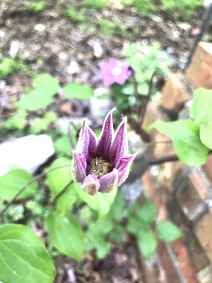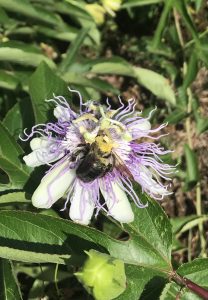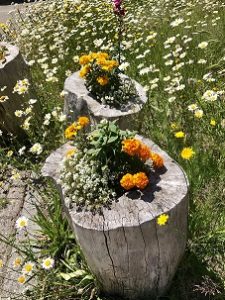 Did you know that 75-90% of visits to a health practitioner are related to stress? We all experience stress and not all stress is bad. Short-term stress helps us be motivated, but when it becomes chronic it can take a toll on our health and our quality of life. In addition, stress suppresses the immune system, and this may lead to increased illness. These may include digestive issues, skin condition, general autoimmune flareups and more.
Did you know that 75-90% of visits to a health practitioner are related to stress? We all experience stress and not all stress is bad. Short-term stress helps us be motivated, but when it becomes chronic it can take a toll on our health and our quality of life. In addition, stress suppresses the immune system, and this may lead to increased illness. These may include digestive issues, skin condition, general autoimmune flareups and more.
I write this blog as the weather is cold, the sky is overcast with dark clouds and daylight is shorter. This can lead to increased anxiousness, decreased mood, and even seasonal affective disorder. There are certain factors, other than the season, that influence someone’s chances of developing anxiety and mood concerns. These can include trauma, genetic factors, and the health of our microbiome (the bacteria living in our gut). By the way, we are more bacteria than we are human cells!
Lots of literature is out there showing the intricate relationship between the brain and the gut. Basically, the stress response begins in the brain, with the hypothalamus activating the sympathetic nervous system and the adrenal glands releasing adrenaline into the bloodstream. This triggers the fight or flight response. A feedback mechanism signals the hypothalamus to stop the process once the stressful situation has passed. The problem is that it often doesn’t pass and chronic stress dysregulates the HPA axis (hypothalamic pituitary adrenal axis) and chronic elevated cortisol levels occur.
From a naturopathic standpoint, we look at lifestyle which includes the foundations of health. While vitamins and minerals are my go-to, so are herbs. Now you can’t out supplement a bad diet and lifestyle, but if the foundations are there such as B vitamins and omega-3 fatty acids, why not investigate herbal remedies? I love herbs and feel that nature has provided us with everything that humans need. We just need to know what we’re looking for and how to use them.
foundations of health. While vitamins and minerals are my go-to, so are herbs. Now you can’t out supplement a bad diet and lifestyle, but if the foundations are there such as B vitamins and omega-3 fatty acids, why not investigate herbal remedies? I love herbs and feel that nature has provided us with everything that humans need. We just need to know what we’re looking for and how to use them.
Let’s look at some of my favorites as it relates to feelings of being unsettled, uneasy and perhaps unmotivated.
-
Holy basil (Ocimum tenuilorum): I use this in tea to drink (aka Tulsi) and also use this as an essential oil that I apply to lotion and then use on my chest and throat. This herb has been shown to significantly decrease stress-related symptoms including being forgetful, sleep issues and improving generalized anxiousness.
-
Passionflower (Passiflora incarnata): I love this vine-like flower. I found it as a child growing in shrubs and remember the beauty and smell. In the summer, I like to watch the bees hover and drink and look at bit drowsy. We get the same feel as the bees and it helps me settle into a bedtime routine at night.
-
Skullcap (Scutellaria lateriflora): This is another plant that interacts with GABA receptors to induce a calming effect.
-
Lemon balm (Melissa officinalis): I like to grow this in the summer and take the leaves and add to hot water at night for a nighttime beverage. Lemon balm has been shown to be effective for helping with anxious thoughts, improving sleep, increasing calmness and even improving cognitive performance.
-
Sour cherry (Prunus cerasus): I add this because sour cherries and its juice are yummy and help combat inflammation. There is also sour cherry tea that makes a cold day a little warmer. It is rich in phytochemicals and helps with the regulation of the sleep-wake cycle.

